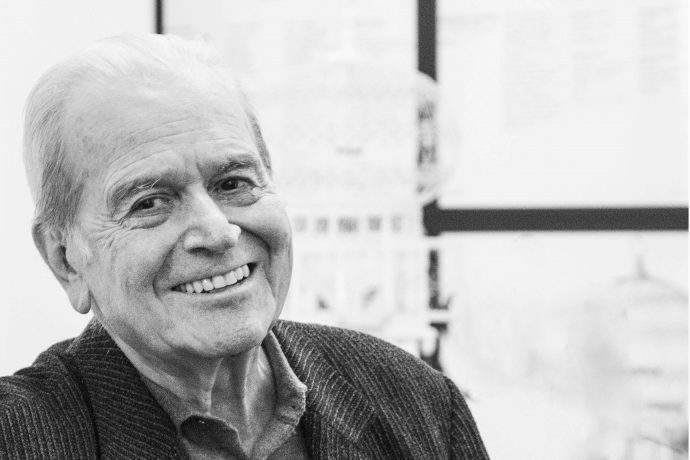The great artist, poet and writer Nanni Balestrini, a leading exponent of the neo-avant-garde, passed away today in Rome at the age of 83: he was part of I Novissimi in the 1960s and was one of the leading names of Gruppo 63, the literary movement that formed in Palermo in 1963 and to which many of the big names in culture at the time belonged.
Breaking the news of his passing was the publishing house DeriveApprodi, with which Balestrini published some of his last works and which reprinted many of his works previously published with other publishers. “It is with sadness and sorrow,” the publisher announced on Facebook, “that we inform of the passing of Nanni Balestrini. A disappearance, not only for us, unbridgeable.”
He was born in Milan on July 2, 1935, and made his debut in 1961 with his poetry collection Il sasso appeso: it was the first of a long series of works, which was followed by other collections and several novels, including Tristano, published with Feltrinelli in 1964 (this was his first experimental novel, constructed through the aggregation, by computer, of different pieces of text of various kinds), Vogliamo tutto (1971, also with Feltrinelli: it is the story of a worker engaged in the struggles of social claims of the hot autumn of 1969), La violenza illustrata (Einaudi, 1976: a book of denunciation against violence). Balestrini also edited, in 1964, the Group 63 anthology (together with Alfredo Giuliani, it was published by Feltrinelli). More recent works include a novel about the Camorra, Sandokan, published with Einaudi in 2004.
As an artist he distinguished himself above all for his visual poems, with works that mix images and words to give rise to ironic results that read current events in a way that is at once mocking, profound and committed, but he was also among the pioneers of video art and experimented with many other techniques. In 1993 he participated in the Venice Biennale, while in 2012 he had exhibited at the thirteenth edition of Documenta in Kassel (where he presented one of his most famous works, Tristanoil, the “longest film in history”), and his solo exhibitions have been held all over Italy (among the latest, Vogliamo tutto in Massa in 2018 and Ottobre Rosso in Milan in 2017).
About his way of understanding poetry, Balestrini wrote in 1961 that “it will no longer be thought and emotion, which were the germ of the poetic operation, that will be transmitted by means of language, but it will be language itself that will generate a new and unrepeatable meaning. And the result of this adventure will be a new light on things, a glimmer among the dark cobwebs of conformism and dogma that relentlessly wrap themselves around what we are and among whom we live. It will be a chance to effectively oppose the continuous sedimentation, which has as its accomplice the inertia of language. All this contributes to considering language as the object of poetry, understood as a verbal fact, that is, employed in a non-instrumental way, but taken in its totality, escaping the accidentality that makes it from time to time a reproducer of optical images, a narrator of events, an administerer of concepts.”
 |
| Farewell to Nanni Balestrini, great artist, poet and writer of the neoavantgarde |
Warning: the translation into English of the original Italian article was created using automatic tools. We undertake to review all articles, but we do not guarantee the total absence of inaccuracies in the translation due to the program. You can find the original by clicking on the ITA button. If you find any mistake,please contact us.